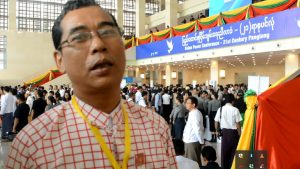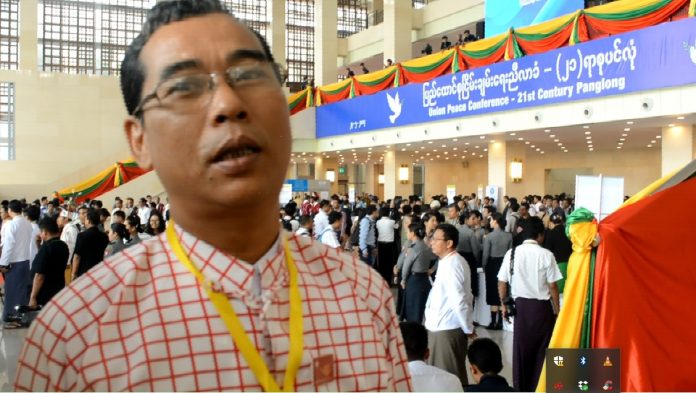The ongoing peace negotiations cannot hope to address the concerns of all minority ethnic people because the large armed groups of the United Nationalities Federal Council (UNFC) are not in attendance, said Nai Layie Tamarh, the general secretary of the Mon National Party. He is attending the second round of the 21st Century Panglong Peace Conference in Naypyitaw and spoke with reporters on the second day of the conference.
“This second round of the conference is different from the first, because in this round the negotiations are broken into groups that will discuss specific issues. But because UNFC is not attending, the voices of minority ethnic people are weak,” he said.

The second round of the peace conference is split into five principles of negotiation: politics, economics, society, land and resources, and security. Nai Layie Tamarh said that his groups focus would be on federalism.
“We’ve got the opportunity to push the idea of real, federal democracy, which is what most Mon people want.”
The negotiations are made more difficult by the splintered landscape of ethnic groups. While the armed NMSP may have refused to join the talks, two competing Mon political parties are in attendance. Nai Kyan Yit, a member of the central executive committee of the other party, the All Mon Regions Democracy Party (AMDP), offered a similar assessment. He said that if an agreement is reached by only the most powerful groups, it won’t address the underlying conflict.
“Minority ethnic groups have been fighting for federal democracy for 70 years, but the political situation is changing. The ethnic groups can now meet together to discuss how to make a federal union.”
UNFC has splintered over whether to join the peace conference. The council’s chair, the Kachin Independence Organization (KIO) and two of its members, the Wa National Organization (WNO) and the Shan State Progress Party (SSPP) have broken with the council to join the talks. The New Mon State Party (NMSP), the Karenni National Progressive Party (KNPP), the Lahu Democratic Union (LDU) and the Arakan National Council (ANC) are not attending.

